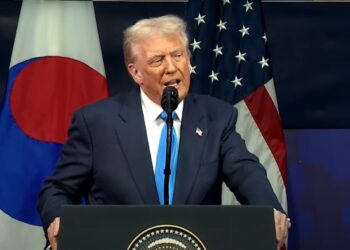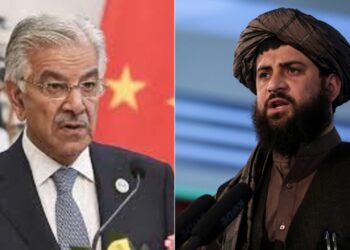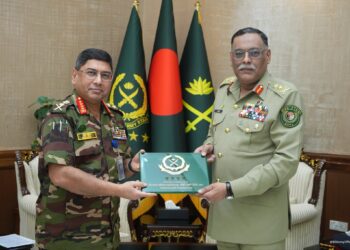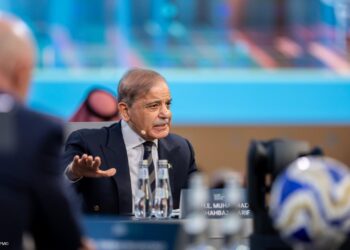Sarosh Mustafa
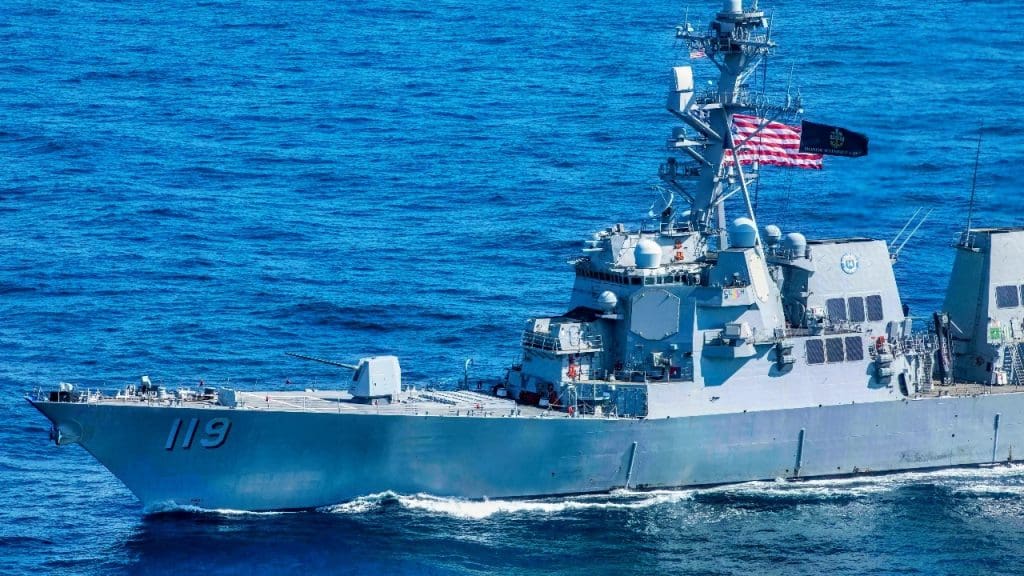
Tensions between the United States and Venezuela have escalated sharply as Washington expands its naval presence in the Southern Caribbean. Venezuelan President Nicolás Maduro, in a fiery press conference, branded the deployment the “gravest threat to the continent in a century,” accusing the U.S. of plotting regime change under the cover of counter-narcotics operations.
Maduro declared Venezuela “super-prepared” to face any scenario, warning: “If the United States dares to attack, Venezuela will become a republic in arms.
Washington’s Largest Naval Show of Force in Decades
The U.S. has dispatched its most formidable fleet to the region in decades, including:
- Guided-missile destroyers and a cruiser
- The USS Iwo Jima, an amphibious assault ship
- A nuclear-powered submarine
Five warships are equipped with Tomahawk cruise missiles, underscoring capabilities far beyond routine anti-drug patrols. Analysts say the scale of the deployment recalls the 1989 U.S. invasion of Panama, which toppled Manuel Noriega—fueling speculation that Maduro himself could be the ultimate target.
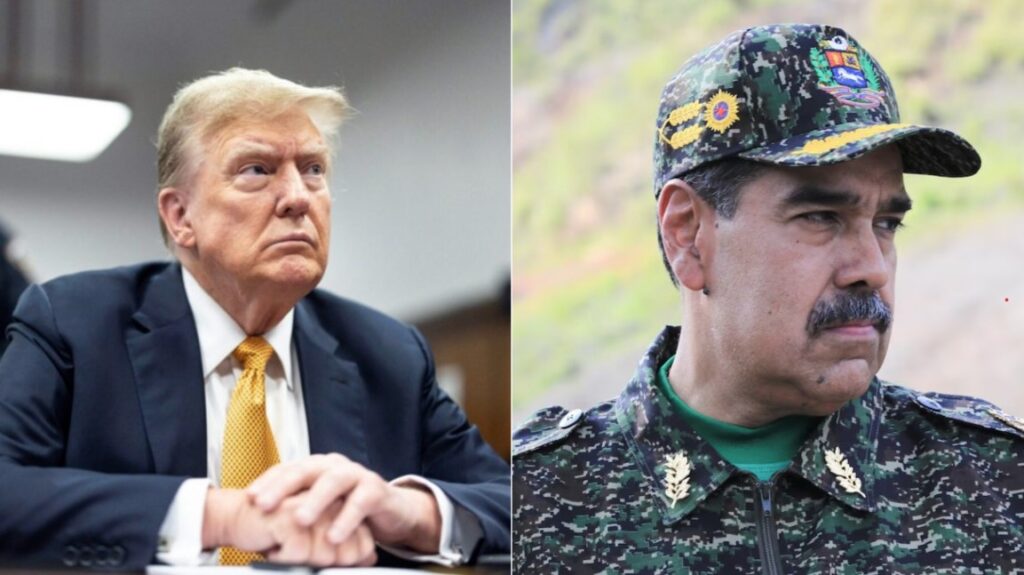
Caracas Responds with “Maximum Preparedness”
In response, Maduro’s government has declared a state of maximum preparedness, mobilizing armed forces, civilian militias, and loyalist networks.
Foreign Minister Yván Gil rejected Washington’s accusations of narcotics trafficking, citing UN data that shows minimal drug flows through Venezuelan territory.
Despite heated rhetoric, Maduro admitted that communication channels with the U.S. remain open, leaving a narrow window for diplomacy.
Divided Region, Divided Nation
The U.S. military surge has split Latin America:
- Brazil and Colombia condemned the deployment as destabilizing.
- Guyana and Trinidad and Tobago openly welcomed U.S. intervention.
Inside Venezuela, divisions run deep. Opposition factions are torn—some see U.S. pressure as a chance to weaken Maduro, while others fear escalation could plunge the country into war and worsen its already devastating humanitarian crisis.
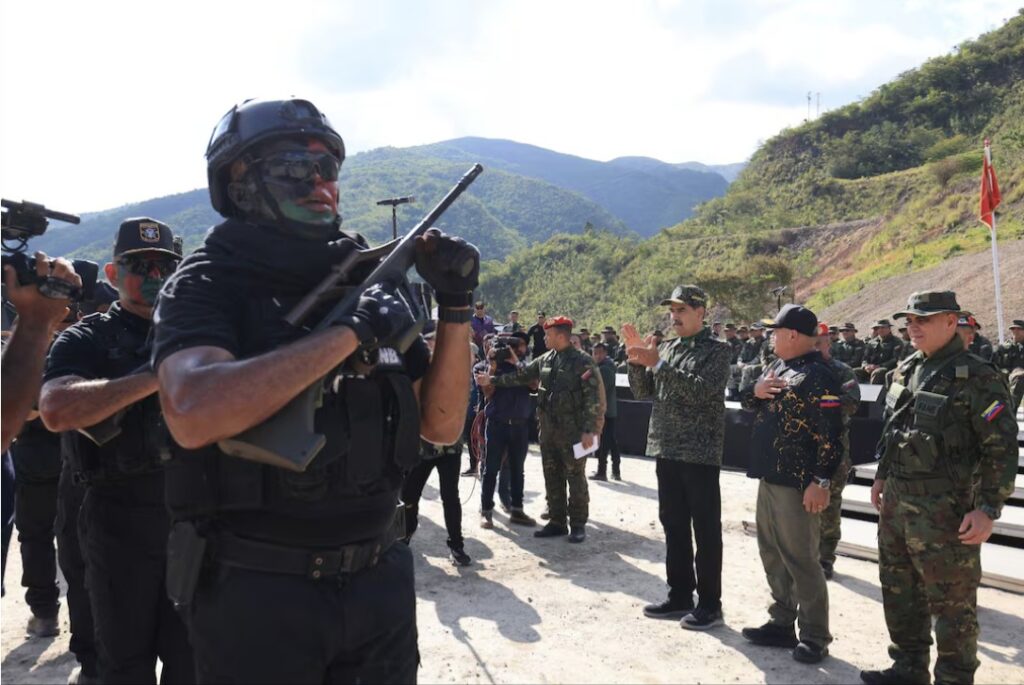
A Dangerous Moment for the Hemisphere
With warships and Marines now stationed just off Venezuela’s coast, the crisis has become the gravest geopolitical showdown in the Americas since the Cold War.
For Washington, the build-up signals strategic ambitions far beyond counter-narcotics missions. For Caracas, it is a fight for sovereignty and survival.
The region now stands at a crossroads—between diplomacy, brinkmanship, and the shadow of armed conflict.

